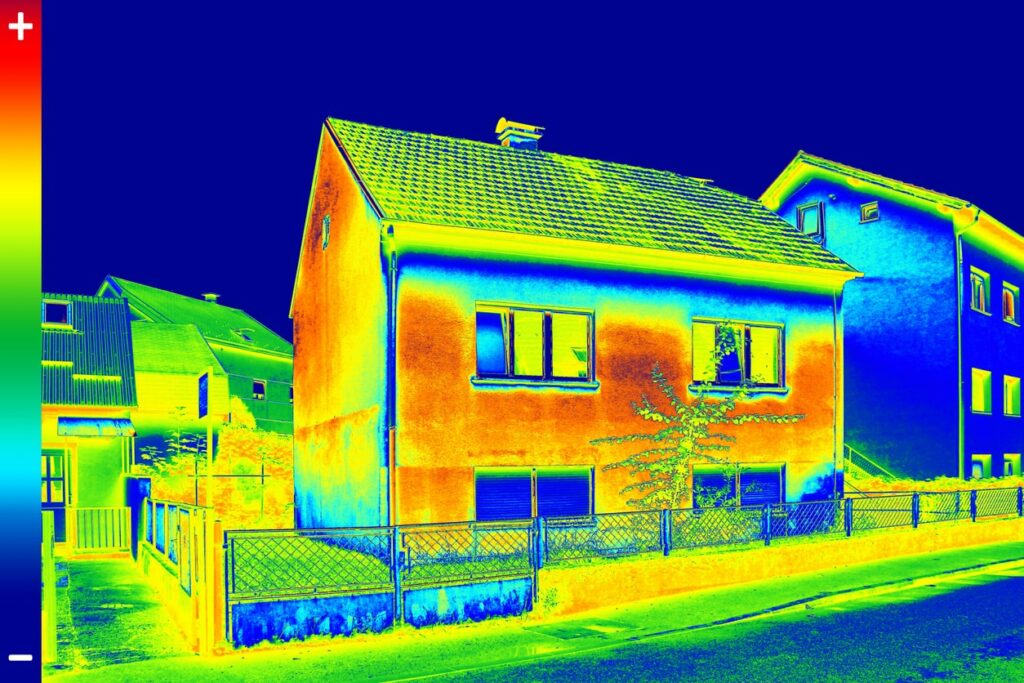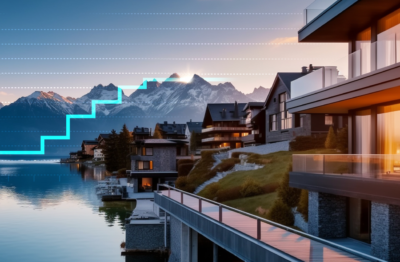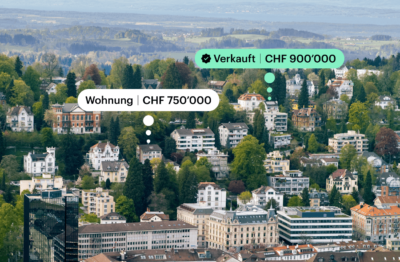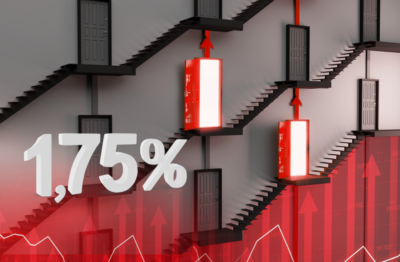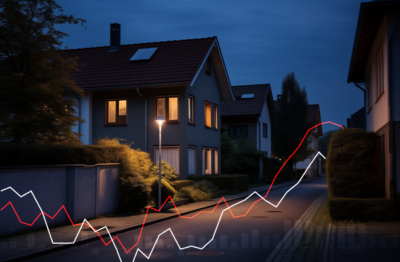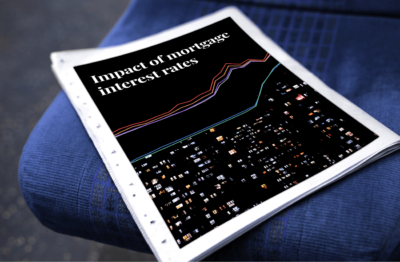Energy crisis – The war in Ukraine has triggered a global energy crisis that is also affecting Switzerland. Resources are becoming scarcer and prices are skyrocketing. For homeowners, this clearly means that action must be taken! Energy efficiency must be reviewed – and parts of the building refurbished if necessary.
Table of contents
ToggleAround 1.5 million Swiss homes are in need of energy-efficient renovation. Now, at the latest, with the onset of the global energy crisis, owners should be concerned with their own energy consumption. Attractive federal and cantonal subsidy programs help to carry out necessary renovations. In particular, the “Buildings Program” should be mentioned here, which, depending on the canton, promotes energy measures such as the insulation of roofs and facades, the use of waste heat or the use of renewable energies.
Refurbish or sell after all? What is your property worth?
Where are the typical energy weak points?
The typical energy weaknesses in houses are found in the roof and windows – as well as in the heating and electricity. Heat losses often occur, particularly during heating and hot water preparation. With the help of a refurbishment, existing defects can be eliminated to save energy and costs in the future.
The following average values show how much an energy weakness can affect the energy efficiency of a building:
- External façade: Inadequate insulation can lead to up to 30 percent of heating energy being lost unused.
- Roof: Poorly insulated roofs allow up to 20 percent of heating energy to escape from the house.
- Basement: An insufficiently insulated basement allows up to 11 percent of the heat from the heating system to escape from the house.
- Windows: Radiators located directly under the windowsill and leaky windows draw warm air from the inside to the outside. This can result in heat losses of up to 12 percent.
- Heating: Old heating systems cause heat losses of 15 to 30 percent due to poor insulation.
How is energy efficiency calculated?
To determine the energy efficiency of your home, it makes sense to take a look at your energy bill. Compare the values to find out how high the consumption should be for a house of this type and size. For a well-founded assessment, you are in good hands if you rely on the expert advice of a real estate expert who can show you in detail how and where energy efficiency can be optimized, taking into account the life cycle of the property.
Measures for calculating energy consumption
Even if you have no concrete suspicion of energy efficiency problems, it is advisable to calculate the energy consumption and energy losses. With the GEAK®, a combined building energy certificate issued by the cantons, the energy requirements of properties are determined on the basis of building data and validated with the actual consumption data. It also makes sense to take a thermographic infrared image, which can be produced for 200 to 500 francs and shows where heat is being lost.
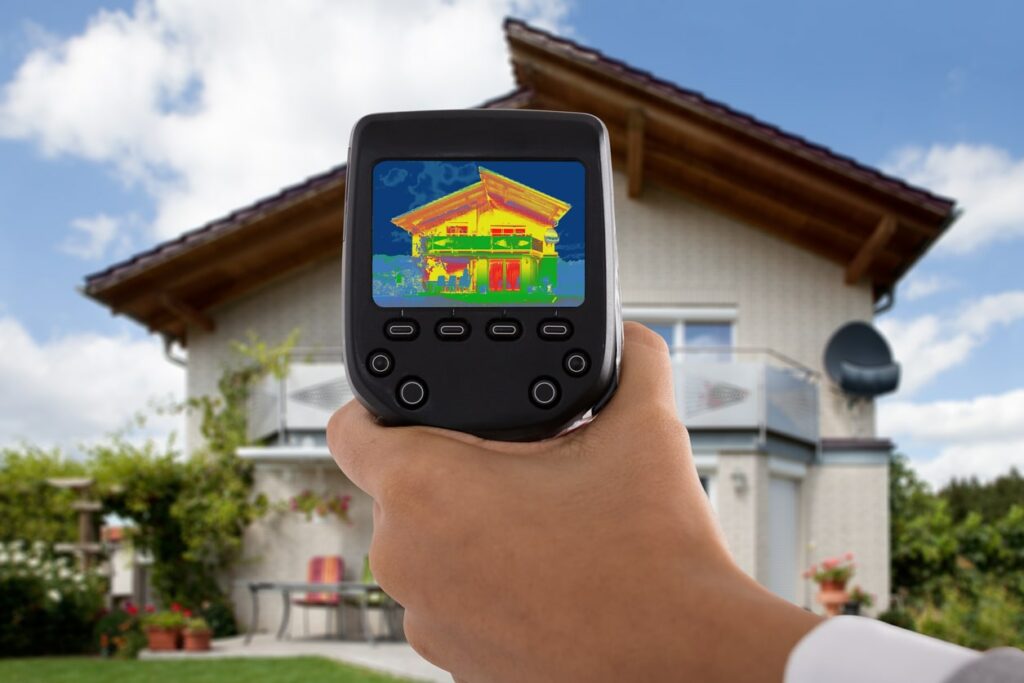
How can energy be saved easily and effectively?
At first glance, outdated buildings may appear to be energy guzzlers, but they can usually be easily renovated. Thermal insulation or switching to renewable energies are frequently used ways of saving energy. Since most energy is used for heating, there are many energy-saving methods available even before the renovation. You can achieve an efficient building by reducing the room temperature by 1°C, ventilating properly, switching off appliances that are not needed, adjusting the output of circulation or heating pumps and making an intelligent choice of heating system.
Important factors for planned energy efficiency measures:
- Energy-efficient buildings have a continuous insulation thickness of 20 cm.
- Comfort ventilation systems extract the heat from the stale air and feed new air back into the house.
- A modern heating system and a change in hot water preparation are important measures for efficient energy use.
- Energy-efficient appliances (without standby mode) as well as LED lighting and motion detectors are worthwhile investments.
- Weigh up whether the use of solar energy, waste heat/environmental heat, district heating and biomass for heating and hot water is an option.
Conclusion
Energy crisis – To achieve the best energy efficiency in buildings, it is important to plan well. Many owners prefer to take only individual and really necessary measures in order to preserve their finances for as long as possible. As long as the overall energy situation of the building is taken into account, this is a possible approach (as long as the legal situation permits). However, postponed is not canceled! Delayed measures will catch up with you sooner or later, as the costs for a complete failure of radiators, for example, will be higher than for a planned renovation.
The fact is: Experience has shown that comprehensive renovation can at least halve energy consumption and create additional living comfort. Those who take the appropriate steps not only act in the interests of the future, but can also expect the following benefits, among others:
- Increased value and long-term value retention of the property thanks to high energy efficiency
- Improved and increased living comfort thanks to pleasant room temperature, less draughts and protection against overheating in summer
- Increasing the attractiveness of the property for heirs
- Savings potential for heating, hot water and electricity
- Sustainable protection of the climate and environment
- Frequency of sudden renovations is reduced
- Attractive subsidies in the respective cantons
Do you need help marketing your property? Our experts will support you from A to Z and are available to answer all your property-related questions.
All data are without guarantee. The information on these Internet pages has been carefully researched. Nevertheless, no liability can be assumed for the accuracy of the information provided.
